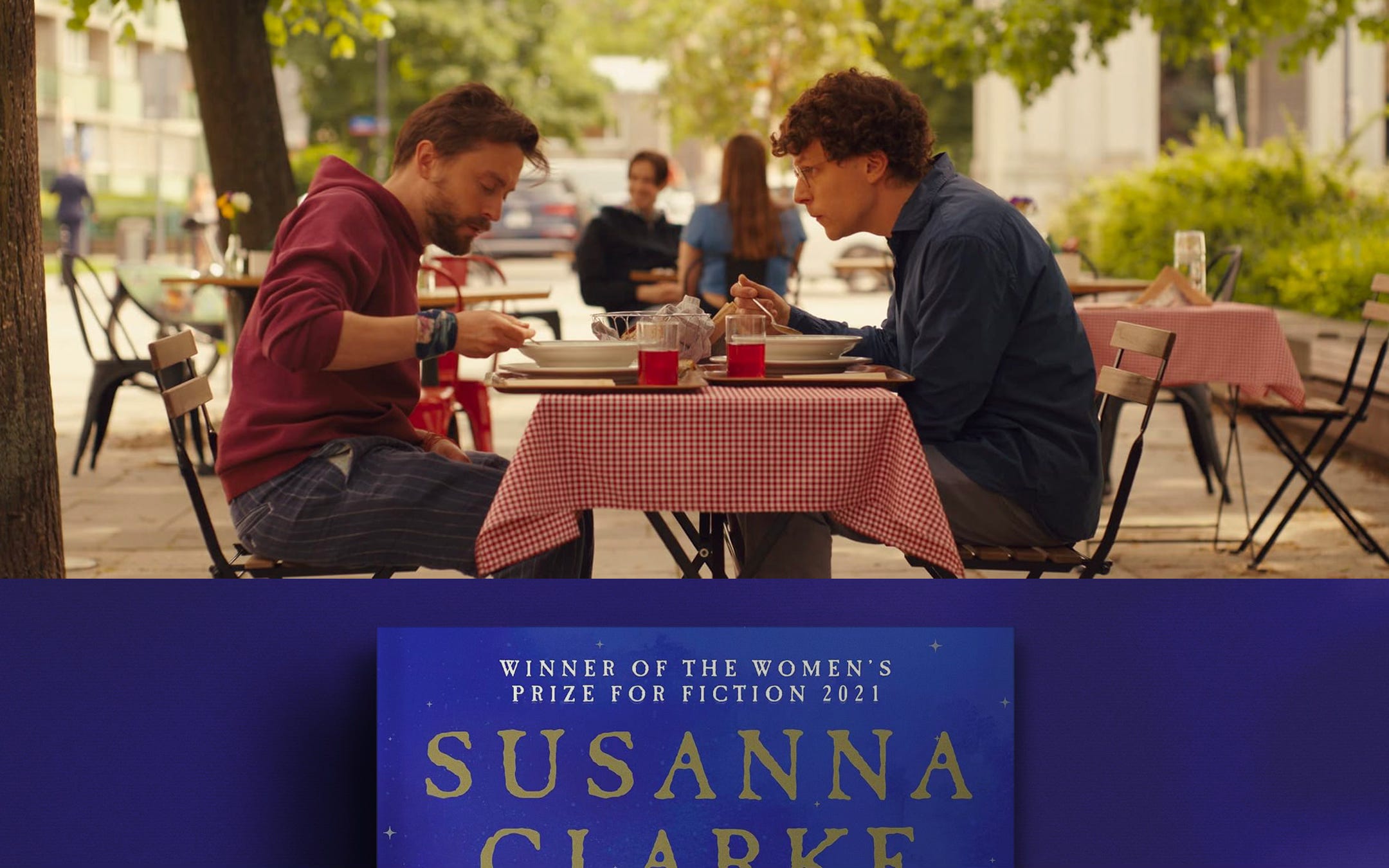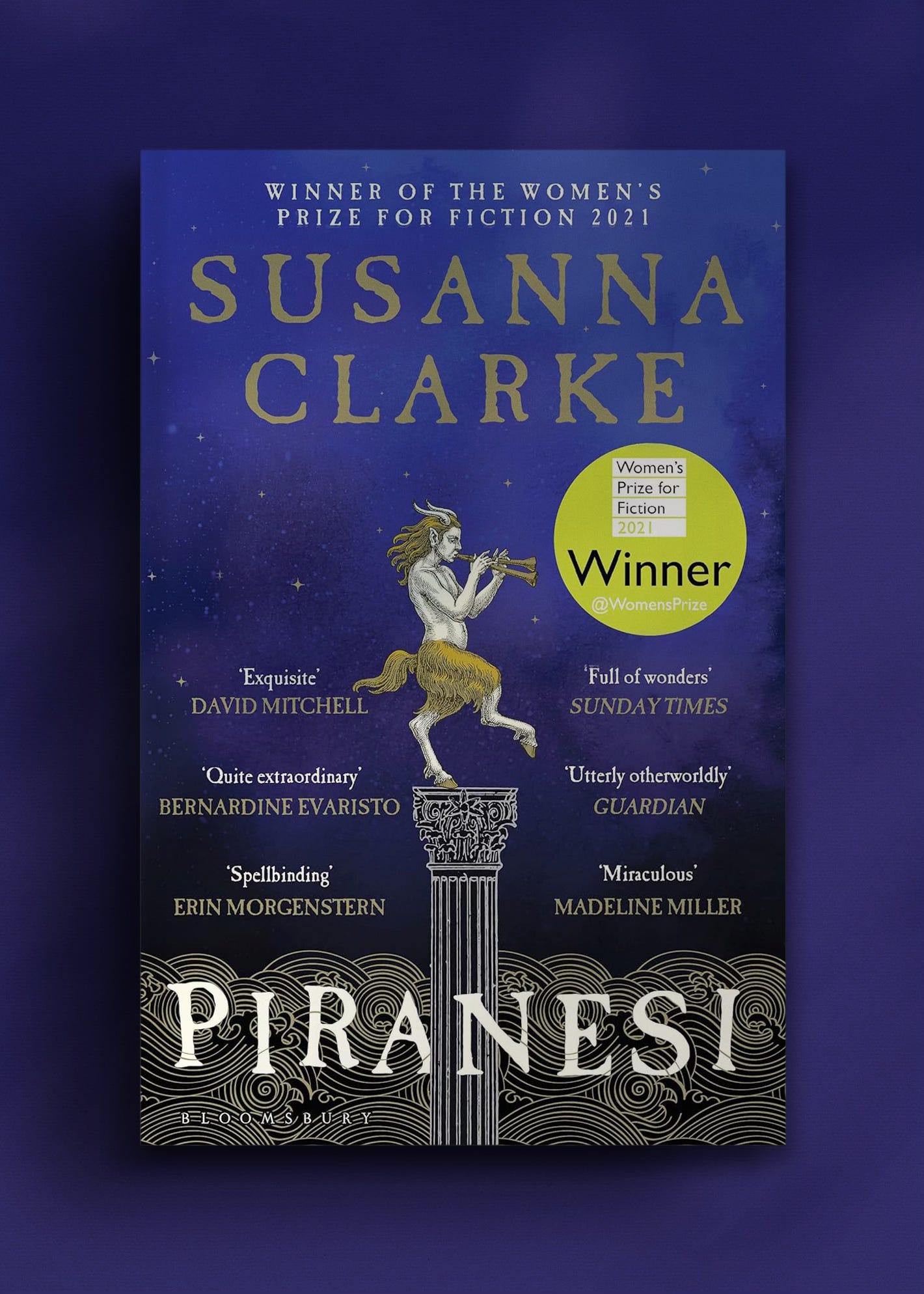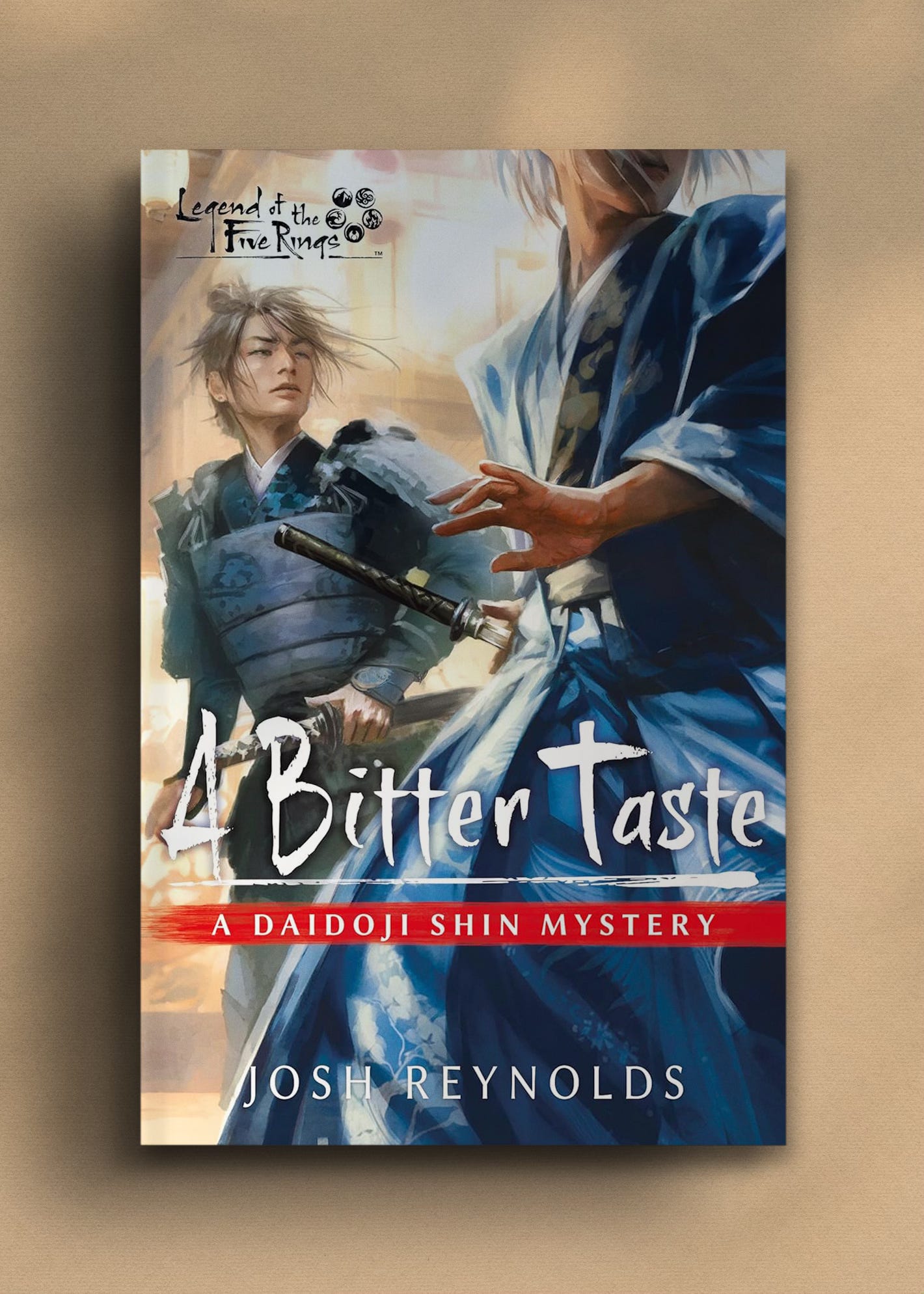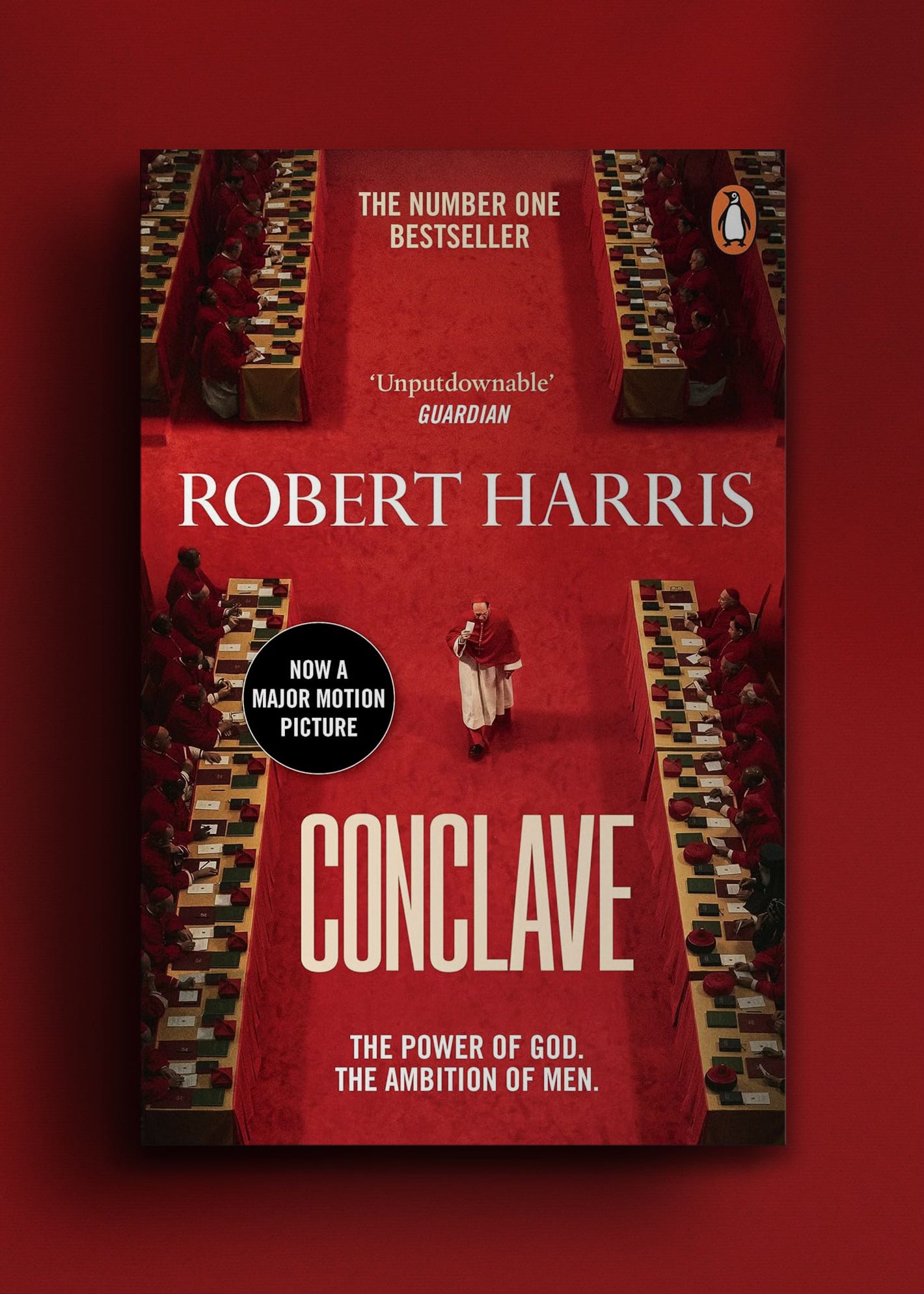The Dispatch #3 – On Pitches & Robust Ideas
February 2025's roundup from Jordan Acosta, a British speculative fiction writer.
About Me
I'm a British 40-something speculative fiction writer, professional designer and creative director based near London. Over the last five years, I’ve worked on drafting my debut novel, Dark Century. The Dispatch is my monthly newsletter, published on the first Thursday of the month.
Format
Topics are broken down into:
CABLE – News & events;
MINUTES – On Writing & Publishing;
VETTING – The Month's Reviews;
POSTINGS – Elsewhere, On/Off-line;
INTERCEPT – Quote of the Month
CABLE –
News & Events
I know I’m a month late with this, for good reason: December and most of January were a wipeout after moving house. Days after the last edition went out, it all happened very quickly after months of waiting. As there were no removals companies available before Christmas, it was left to me and a close friend to fill a lorry with not only my office and things, but also all the new furniture which had to be shipped to my old address whilst the conveyancing dragged on.
Moving shortly before Christmas also added the considerable pressure assembling furniture, decorating and hosting in the space of a week in time to host. Despite the furious pace, it got done, and I now have a temporary office occupying a small bedroom, which only required a day's work destroying the built in fittings…
Over the winter holiday, I produced a rare, one hour long interview between Peter Moore and Nikolai Tolstoy, who is the stepson of the beloved historical fiction writer Patrick O’Brian who passed away in early January, 25 years ago. I urge you to give it a listen, it’s worth your time if Napoleonic sea stories are your thing, or if not, give Master and Commander another watch.
MINUTES –
On Writing & Publishing
[Editorial Note: An earlier version of the below-linked piece was published in this edition]
Putting the Blurb Before the Book
We’ve all been there, trying to pick out what to read next from a dizzying array of books lined up on shelves or screens. With so much visual noise, the blurb1 – the back cover copy, rather than the nice comments from other authors – remains one of the most effective aids to making this decision, as it’s the first point of contact a reader has with a book beyond the cover. Its job is to get across a sense of genre and voice, to seize the reader’s attention in the hope of hooking them into buying the book.
I like reading blurbs as inspiration on how to write my own, but lately I’ve also come to appreciate its value as a means to explore ideas for future novels, before I’ve written a single line of prose. After all, if I’m going to commit months or years to turning an idea into a novel, then I’d better make sure I’m interested in the idea.
Coming up with an idea is the easy bit. Writing my own blurb – as a pitch – helps me give the idea shape, to clarify the story in my mind, and to pose questions like what’s it about? Who’s in it? Where is it? What happens? What feelings am I trying to evoke in a reader?
Answering these questions using a blurb is something I’ve been doing to generate the premise for my next novel.
VETTING –
The Month's Reviews
Book Review:
Piranesi by Susanna Clarke
Bloomsbury, 2020
I am determined to explore as much of the World as I can in my lifetime. To this end I have travelled as far as the Nine-Hundred-and-Sixtieth Hall to the West, the Eight-Hundred-and-Ninetieth Hall to the North and the Seven-Hundred-and-Sixty-Eighth Hall to the South. I have climbed up to the Upper Halls where Clouds move in slow procession and Statues appear suddenly out of the Mists. I have explored the Drowned Halls where the Dark Waters are carpeted with white water lilies. I have seen the Derelict Halls of the East where Ceilings, Floors – sometimes even Walls! – have collapsed and the dimness is split by shafts of grey Light.
I picked up, and then put down Piranesi upon its release, having only read half the first chapter. I can’t tell you what gave me cause to do so; I could ascertain it was a Very Good Book, but not one for me at the time. Thankfully, I had another go at it and read it in two sittings. Piranesi is a whimsical novel, one where the setting is so vividly described someone could probably have a good go at charting the eponymous character’s explorations through the House as the story progresses. The conclusion was not what I expected at all, but I wasn’t disappointed. In fact, one of the theories I had about Piranesi inspired another novel idea I had in the setting of Dark Century, and I’ve already made a note to re-read Clarke’s opus if I ever get to tackle it.
Book Review:
A Bitter Taste by Josh Reynolds
Aconyte Books, 2024
The priest’s presence came as something of a surprise to Shin, but he was careful not to let it show on his face as Tetsua glanced up from the board and gave Shin a lingering gaze. “So glad you could join us, Lord Shin. I trust we are not taking you away from anything important.”
“I was sulking,” Shin said blithely. “A good sulk does wonders for the soul.”
I normally wouldn’t review the fifth book in a long running series, but Josh Reynolds’ Daidoji Shin mysteries deserve a wider readership. For context, the series occurs in the mythical realm of Rokugan, a fantasy-Japan analogue originally developed for a collectible-card playing game in the 1990s. I will admit I’m not familiar with the wider setting for the games, but that doesn’t matter on the basis that Reynolds’ has done a sterling job of inserting his golden age detective stories within the setting. Having now read all the books, I can confidently suggest the fantastical/magical elements (that could put readers off) are scaled so far back, the series could conceivably have been marketed as Japanese historical fiction.
In A Bitter Taste, Shin - the estranged grandson of a clan lord - investigates the murder of one of the his grandfather’s chief auditors, a task made all the more difficult by the fact Shin is the primary suspect. I won’t say too much more as the novel weaves together plot threads and characters from previous entries in the series, but if you were to pick up Book 1, expect witty repartees as Shin does battle with his words and intellect with a growing ensemble. The series is a staple for me, and I hope Reynolds writes many, many more.
Book Review:
Conclave by Robert Harris
Cornerstone, 2016
As he passed, Tedesco said sharply, 'My goodness, that was a novel interpretation of Ephesians, Dean – to portray St Paul as an Apostle of Doubt! I've never heard that one before!' He swung round, determined to have an argument. 'Did he not also write to the Corinthians, "For if the trumpet give forth an uncertain note, who shall prepare himself to the battle?"'
Lomeli pressed the button for the second floor. ‘Perhaps it would have been more palatable to you in Latin, Patriarch?’
The doors closed, cutting off Tedesco’s reply.
Conclave has been on my TBR list for years, and the imminent arrival of Edward Berger’s screen adaption starring Ralph Fiennes spurred me give it a go. There’s a lot to like about Conclave, given the premise could’ve gone in a number of directions. Told through the perspective of Jacopo Lomelli, the Dean of the College of Cardinals; we get a glimpse behind the curtain of what happens when a Pope dies, and a successor chosen via a tedious papal conclave.
And yet, the novel is anything but.
Lomelli is presented as an impeachable Atticus Finch-esque paragon of virtue, assailed by the shifting tides of cardinal factionalism fanned by several conspiracies designed to influence the outcome. Whilst Lomelli himself cannot act as a neutral bystander to events, through him Harris has provided a vehicle where the reader can be partial to all the information which another character would not have cause or authority to obtain. I had half expected the plot to veer into papal assassination conspiracy (which mercifully, it didn’t), and was pleasantly surprised by the appropriate stakes that kept me engrossed in the story.
Conclave will alienate many readers due to its male-focused hyper religious subject matter, but Harris injects a surprising cosmopolitan flavour to the proceedings and enough twists and turns to keep the page turning.
Film Review:
A Real Pain
Director: Jesse Eisenman, 2024
David: This is so fucking stupid. Tickets are probably like twelve bucks.
Benji: It's the principle of the thing. We shouldn't have to pay for train tickets in Poland. This is our country.
David: No, it's not, it was our country. They kicked us out 'cause they thought we were cheap.
Confession: I didn’t even know film we were watching as my partner bought the tickets, and was quietly blown away by Eisenman’s second outing as director.
A Real Pain introduces us to mis-matched cousins David (Eisenman) and Benji (played by Succession’s Kieran Culkin), as they journey to the ancestral home of their deceased Polish grandmother. If I saw the premise on paper, I couldn’t conceive of how a part-comedy could be pulled off in the context of a holocaust tour. The execution is pulled off with wonderfully understated performances by a fantastic supporting cast; from divorcee Marcia (Jennifer Grey), affable British tour guide James (Will Sharpe), and Rwandan Genocide survivor-turned-Jewish pilgrim Eloge (Kurt Egyiawan), A Real Pain is a warm, often emotionally raw insight into the lives of two personalities moulded by the same life experiences.
I don’t really know what else to say about this film other than to go and watch it as soon as you can. The cinematography captures the Polish landscape effortlessly, and it’s notable for the first feature film to be permitted inside Majdanek concentration camp; a profoundly upsetting location which has been skilfully woven into the narrative.
Film Review:
Nosferatu
Director: Robert Eggers, 2024
Orlok: I am an appetite. Nothing more. O'er centuries, a loathsome beast, I lay within the darkest pit. 'Til you did wake me, enchantress, and stir me from my grave.
I watched Robert Eggers’ reboot of the 1922 screen ‘adaption’ of Bram Stoker’s Dracula on New Year’s Day. There are strong performances throughout by the main cast, particularly with Bill Skarsgård’s chilling vocal performance as Count Orlok, and Simon McBurney’s delightfully unhinged Knock/Renfield character; but the real star of Nosferatu are the incredible Carpathian Alps in the first half of the film as Hutter (Nick Hoult) journeys to Count Orlok’s mountain fastness. The primordial cold and the Roma exhumation and exorcism customs Hutter encounters en route were wonderfully executed; though the film moves into conventional Hollywood fare in the second half as Orlok haunts the city of Wisburg on his quest to meet Ellen Hutter (Lily-Rose Depp). I’d honestly rewatch the first half with the accompanying score and no dialogue, and be just as impressed.
You can find the full archive of all my short reviews, here.
POSTINGS –
Elsewhere, On/Off-line
It’s digital tinnitus. It’s the pop-up from a shopping app that you downloaded to make one purchase, or the deceptive notification from Instagram that you have “new views” that doesn’t actually lead anywhere. It is the autoplaying video advertisement on your film review website. It is the repeated request for you to log back into a newspaper website that you logged into yesterday because everyone must pay and nothing must get through. It is the hundredth Black Friday sale you got from a company that you swear you unsubscribed from eight times, and perhaps even did, but there’s no real way to keep track. It’s the third time this year you’ve had to make a new password because another data breach happened and the company didn’t bother to encrypt it.
– Ed Zitron, Never Forgive Them
[A] layer of green, foamy scum clings to the surface of the ocean so that when the waves wash your footprints away, they are replaced by a layer of vile, reeking slime dotted by writhing marine organisms. This is, at times, how the internet feels right now. We are being slowly erased, but instead of passing peacefully into the vale with the ebb and flow of soothing waves, we are being actively replaced by garbage.
– S.E Smith, The Verge, How to disappear completely
[T]hat’s something I really make an effort to do, is to make every little character, every side character, the protagonist of their own story… in their experience, they are the protagonists of that book, or the book of their life. And I always try and beat that in mind.
– Will Dean, The Read and Buried Podcast #106
INTERCEPT –
Quote of the Month
“Long, heavy moments of silence. The condemned and their executioners stare at each other. The announcement, issued in such a detached, natural-sounding voice, doesn’t spark a bit of suspicion. Only a few of us are flummoxed by the generosity. This is not the Nazis’ style. Many prepare to go all the same. Even I make an involuntary movement. That’s when one of the carts carrying the dead turns closer to us. It rattles past between the two columns a few steps away.”
The Cold Crematorium, by József Debreczeni (Vintage Books, 2025)
Many thanks for reading. The Dispatch is a monthly roundup by British speculative fiction writer, Jordan Acosta. News, short reviews and more, published every first Thursday. You can subscribe at jordanacosta.co, and read previous editions, here.
If you no longer wish to receive emails from me, there’s an unsubscribe link at the bottom of this email.










